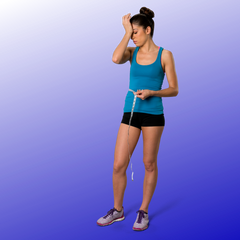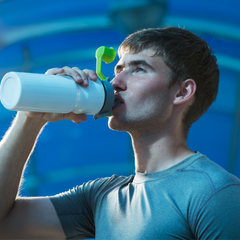Recovery Training: The Key to Physical Toughness (Part 1)
(Excerpts taken from Toughness Training for Life, James E. Loehr, Ed.D.)
KAROSHI. It’s a Japanese word. Death (shi) from overwork (karo).
 As men and women struggle to meet the physical and emotional demands of modern life, long work hours, constant pressure to meet expectations, relentless traffic, too little family time, too much alcohol, too many cigarettes, increasing financial pressures , and nutritionally deficient diet set the stage. The curtain comes down, not from an acute episode of karo (overwork), but from heart attacks, complications of high blood pressure, lung cancer, suicide, and the entire collection of degenerative diseases.
As men and women struggle to meet the physical and emotional demands of modern life, long work hours, constant pressure to meet expectations, relentless traffic, too little family time, too much alcohol, too many cigarettes, increasing financial pressures , and nutritionally deficient diet set the stage. The curtain comes down, not from an acute episode of karo (overwork), but from heart attacks, complications of high blood pressure, lung cancer, suicide, and the entire collection of degenerative diseases.
Research conducted by Japan’s Institute of Public Health identified 5 patterns of work that lead to the fatal syndrome:
1. Extremely long hours that interfere with normal recovery and rest patterns.
2. Night work that interferes with normal recovery and rest patterns.
3. Working without holidays or breaks.
4. High-pressure work without breaks.
5. Extremely demanding physical labor/training and continuously stressful work without relief.
Inadequate recovery was found to be a major contributing factor in all five patterns of karoshi.
Recovery is a vital concept. It means renewal of life and energy. Knowing how and when to recover may prove to be the most important skill in your life, because it is not the merely volume of stress in your life but rather the volume of stress relative to the volume of recovery that is the critical factor in maintaining health. Put another way, insufficient recovery relative to a high volume of stress is what is most damaging. High stress can weaken you, maintain you, or strengthen you. How high stress affects your overall health depends on how well your recovery balances that high stress.
A high level of stress is necessary to to maintain a high level of toughness, therefore, the goal is not necessarily to reduce stress, but to increase the volume and effectiveness of recovery to a level that balances the stress.
THE MOST IMPORTANT UNDERSTANDING: Trained recovery is the foundation of toughness both in life and in sport. If you want to get tougher, the requirements are few and simple: Learn how to make powerful waves of recovery as well as powerful waves of stress.
Ultradian and Circadian researchers like psychobiologist Ernest Rossi, refer to the habit of ignoring the body’s need for rest and recovery as endurance stress. Breaking cycles of stress every 90 to 120 minutes with 15 to 20 minutes of recovery fits the body’s natural needs best, Rossi reports. He also states that these 15 to 20-minute rest breaks restore proper ultradian rhythms and, in so doing, are critical to physical and psychological rejuvenation and long-term health. Rossi contends that disregarding the body’s basic need for recovery depletes the hormonal messenger molecules.
This depletion reduces the body’s ability to adapt. Glucose and insulin, the messenger molecules that regulate energy–plus the messengers that regulate stress, cortisol and adrenaline–appear to follow ultradian patterns. This further supports Rossi’s position.
To Rossi, accident-proneness, poor decision-making, mistakes of omission and impatience are early signs of poor restoration (recovery). Problems with sleep, heart, immune system, and gastrointestinal function are symptoms of chronic failure to respond to the body’s recovery needs.
The Most Basic Human Physiological Need is the Need to Expend and to Recover Energy (to oscillate)
- Need to Expend Energy (Stimulation, Movement, Arousal)
- Need to Recover Energy (Food, Water, Sleep)
The most important forms of stress involve stimulating and moving the physical body; the most important forms of recovery involve eating, drinking and sleeping. Failure to meet these basic body needs interferes with, and can even block, the fulfillment of other needs.
 The need for physical stimulation is relieved by exercising, but as you continue to exercise, the need to physically recover gradually increases. Once you stop exercising, the need for physical stimulation starts to build again. The critical point here is that if one does not meet important bodily needs, stress and recovery are thrown out of balance, thus increasing the risk of linearity. Poor nutrition, thirst, or inadequate sleep beat down our ability to expend energy or cope with even moderate stress. The impact can be drastic. Under these conditions our mental and physical toughness–our fight, passion and endurance–erode away. Problems of poor hydration or low blood sugar routinely cause athletes to lose their ability to tolerate stress. When basic physical needs are no longer met during physical exertion or competition, even the toughest athletes can collapse under the pressure.
The need for physical stimulation is relieved by exercising, but as you continue to exercise, the need to physically recover gradually increases. Once you stop exercising, the need for physical stimulation starts to build again. The critical point here is that if one does not meet important bodily needs, stress and recovery are thrown out of balance, thus increasing the risk of linearity. Poor nutrition, thirst, or inadequate sleep beat down our ability to expend energy or cope with even moderate stress. The impact can be drastic. Under these conditions our mental and physical toughness–our fight, passion and endurance–erode away. Problems of poor hydration or low blood sugar routinely cause athletes to lose their ability to tolerate stress. When basic physical needs are no longer met during physical exertion or competition, even the toughest athletes can collapse under the pressure.
Stay tuned for Part 2 of this article!
Visit PlumDragonHerbs for products to aid in your recovery efforts!
The post Recovery Training: The Key to Physical Toughness (Part 1) appeared first on Plum Dragon Herbs.








